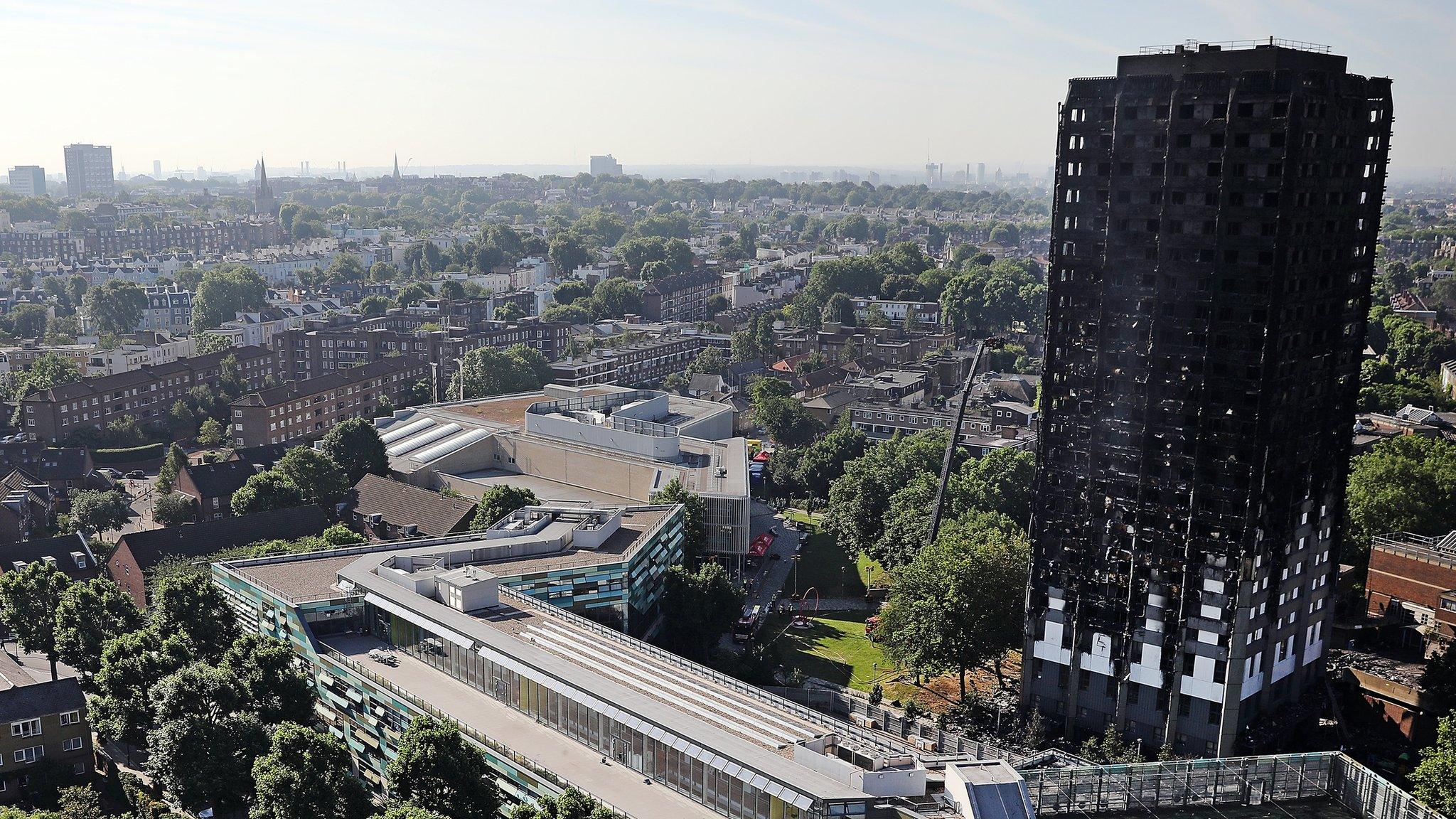London fire: 'We can accept death but not being burnt alive'
- Published
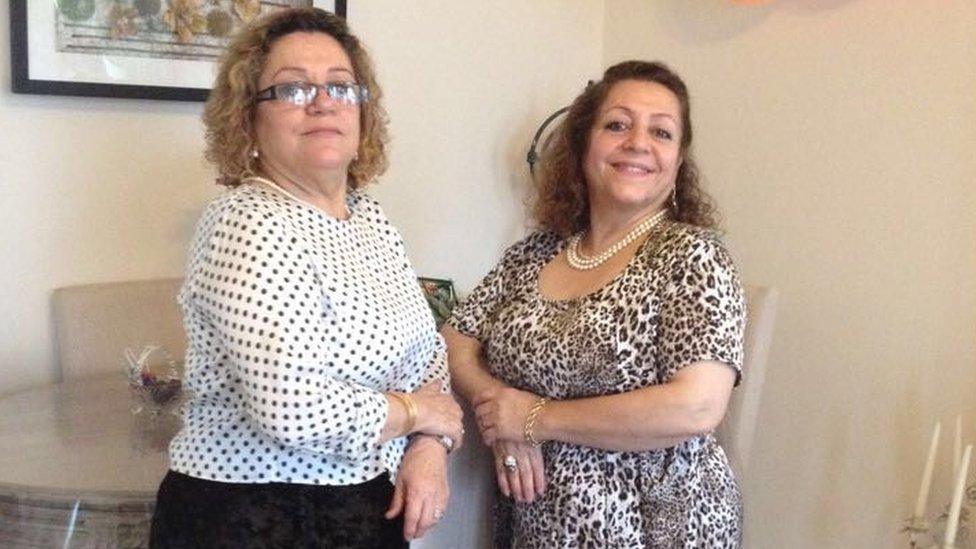
Sakineh Afrasehabi (left) and sister Fatima Afrasiabi
As grieving families come to terms with losing their loved ones in the fire that engulfed Grenfell Tower, one woman says her disabled mother never had a chance of escaping to safety from her home on the 18th floor.
Nazanin Aghlani still has no confirmation of her mother Sakineh Afrasehabi's fate but is convinced she could not have survived.
Describing her family's anguish, she said: "We're not all right. We can accept death but being burnt alive?"
Mrs Aghlani said her mother had been registered as disabled and the family had been worried about her ability to escape her home in an emergency.
She claims repeated attempts to have her re-housed in more appropriate accommodation had failed.
"This property was not suitable for a disabled person," she said.
"She was put in a death trap. They should have thought of how she'd escape in a fire."
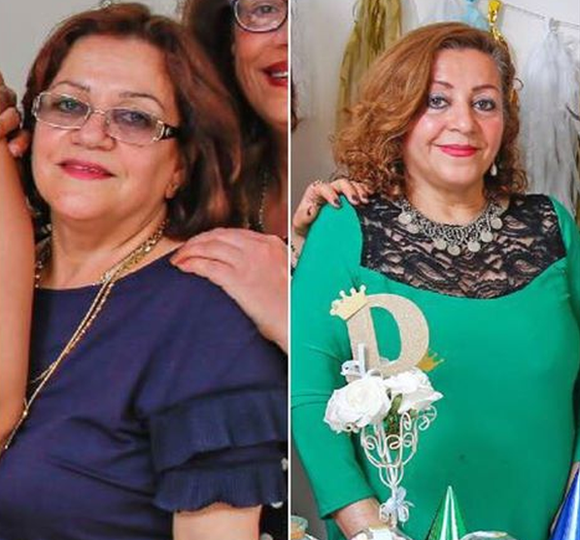
Sakineh Afrasehabi (left) and sister Fatima Afrasiabi
Mrs Afrasehabi, who was partially sighted and could not walk very far, also had diabetes and high blood pressure.
She moved to Grenfell Tower last year after trying for a long time to move from her previous home, in Ladbroke Grove, because she had been struggling to manage the 40 steps needed to access her flat.
"She'd waited 17 years to get a transfer, and then they put her that high up," Mrs Aghlani said.
A spokesman for the Royal Borough of Kensington and Chelsea Council said: "We do not make direct offers of properties above 4th floor level in lifted blocks in the cases of people with disability access needs.
"However, through the council's choice-based letting system, Home Connections, housing applicants are able to choose to bid on lifted properties located on higher floors."
'Goodbye' phone call
Mrs Aghlani said she was offered flats on only the higher floors of tower blocks and claims the council told her: "we have too many disabled people."
She said she had sought legal advice on behalf of her mother who had been told she had not been near the top of the waiting list.
"My mum was forced to take anything that came along," she said.
"I had bid for so many one-bed flats for my mum, but we were refused anything and everything.
"She was getting so ill that she had no choice but to bid for Grenfell. I didn't want her to go, but she said she had no choice. "
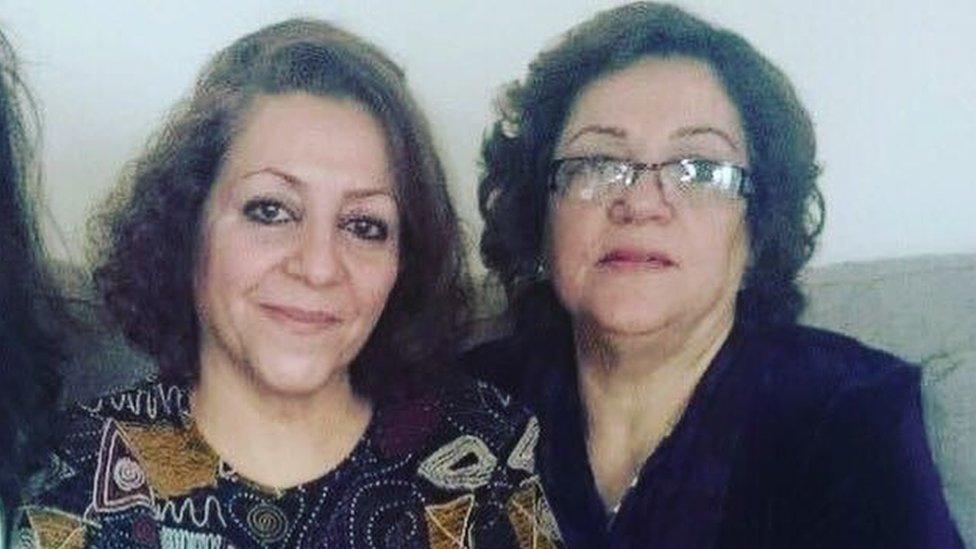
Sisters Fatima Afrasiabi (left) and Sakineh Afrasehabi
On the afternoon before the fire, Mrs Aghlani visited her mother for a family get-together and left at about 19:30.
After the fire broke out, a friend came to help Mrs Afrasehabi and her sister, Fatima Afrasiabi, who was still with her, to get to their flat on the 23rd floor to get away from the smoke.
Mrs Aghlani said the friend was one of a family of seven who had lived together in the property.
At some point, firefighters told them to stay inside the flat, but a couple of the family managed to push past and get out.
"My mum couldn't have done that. She could hardly walk," she said.
"My brother was on the phone with them. She said her goodbyes to him over the phone.
"My aunt Fatima who was staying overnight at my mum's was crying for help and for someone to rescue them."
Mrs Aghlani has had to describe what dress fabric and rings her mother was wearing to the police in the hope she may be identified at some point.
"What's happened was so avoidable," she said.
"Those who have escaped the fire have lost everything - they don't have their homes, but they haven't lost their lives like my mum."
Interview by Sherie Ryder, BBC UGC and Social Media team
- Published3 July 2017
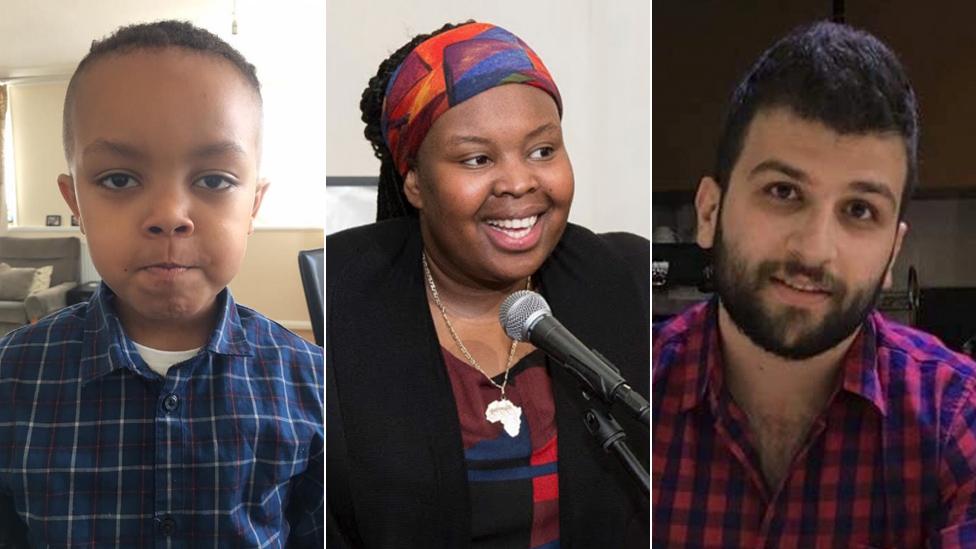
- Published29 June 2017
